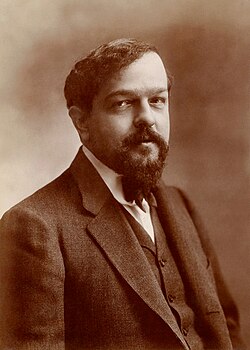Philosophy
Medieval philosophy was dominated by Scholasticism until the emergence of Humanism in the Renaissance. Modern philosophy began in France in the 17th century with the philosophy of René Descartes, Blaise Pascal and Nicolas Malebranche. Descartes was the first Western philosopher since ancient times to attempt to build a philosophical system from the ground up rather than building on the work of predecessors.[321][322] France in the 18th century saw major philosophical contributions from Voltaire who came to embody the Enlightenment and Jean-Jacques Rousseau whose work highly influenced the French Revolution.[323][324] French philosophers made major contributions to the field in the 20th century including the existentialist works of Simone de Beauvoir, Camus, and Sartre.[325] Other influential contributions during this time include the moral and political works of Simone Weil, contributions to structuralism including from Claude Lévi-Strauss and the post-structuralist works by Michel Foucault.[326][327]
Music

France experienced a golden age in the 17th century thanks to Louis XIV, who employed talented musicians and composers in the royal court. Composers of this period include Marc-Antoine Charpentier, François Couperin, Michel-Richard Delalande, Jean-Baptiste Lully and Marin Marais, all of them composers at the court. After the death of the "Roi Soleil", French musical creation lost dynamism, but in the next century the music of Jean-Philippe Rameau reached some prestige.[citation needed] Rameau became the dominant composer of French opera and the leading French composer of the harpsichord.[328]
In the field of classical music, France has produced a number of notable composers such as Gabriel Fauré, Claude Debussy, Maurice Ravel, and Hector Berlioz. Claude Debussy and Maurice Ravel are the most prominent figures associated with Impressionist music. The two composers invented new musical forms[329][330][331][332] and new sounds. Debussy was among the most influential composers of the late 19th and early 20th centuries, and his use of non-traditional scales and chromaticism influenced many composers who followed.[333] His music is noted for its sensory content and frequent usage of atonality. Erik Satie was a key member of the early-20th-century Parisian avant-garde. Francis Poulenc's best-known works are his piano suite Trois mouvements perpétuels (1919), the ballet Les biches (1923), the Concert champêtre (1928) for harpsichord and orchestra, the opera Dialogues des Carmélites (1957) and the Gloria (1959) for soprano, choir and orchestra. In the middle of the 20th century, Maurice Ohana, Pierre Schaeffer and Pierre Boulez contributed to the evolution of contemporary classical music.[334]
French music then followed the rapid emergence of pop and rock music in the middle of the 20th century. Although English-speaking creations achieved popularity in the country, French pop music, known as chanson française, has also remained very popular. Among the most important French artists of the century are Édith Piaf, Georges Brassens, Léo Ferré, Charles Aznavour and Serge Gainsbourg.[335] Modern pop music has seen the rise of popular French hip hop, French rock, techno/funk, and turntablists/DJs. Although there are very few rock bands in France compared to English-speaking countries,[336] bands such as Noir Désir, Mano Negra, Niagara, Les Rita Mitsouko and more recently Superbus, Phoenix and Gojira,[337] or Shaka Ponk, have reached worldwide popularity.
